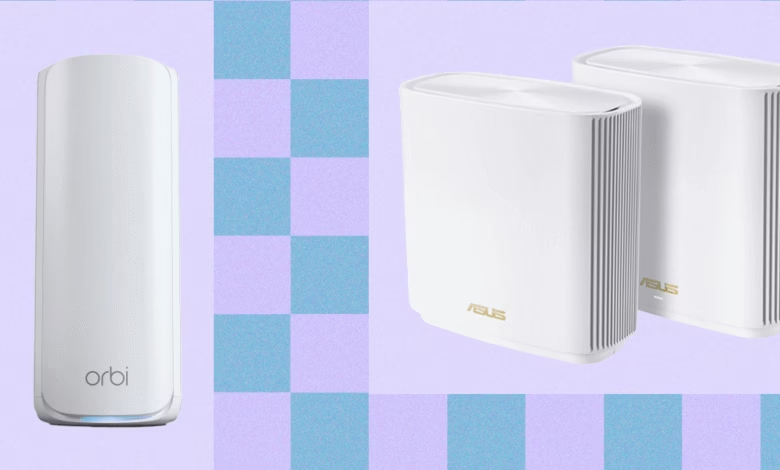Top 6 Mesh Wi-Fi Systems of 2025: Expert Tested & Ranked

▼ Summary
– The Quality of Service (QoS) feature allows prioritizing activities like gaming or streaming and supports splitting 2.4-GHz and 5-GHz bands for compatibility with smart home devices.
– The web interface is basic, but the app is user-friendly, though slow to update and limited in settings, with poor device recognition for parental controls.
– The system is reliable for average home use but may require an upgrade for connections over 500 Mbps, such as the Deco X55 or X60.
– The outdoor mesh router is waterproof, dustproof (IP65-rated), and covers around 2,500 sq ft, supporting Power-over-Ethernet (PoE) for flexible installation.
– Mesh systems are generally better than Wi-Fi extenders, offering faster speeds and better coverage, but placement of nodes is critical for optimal performance.
Finding the perfect mesh Wi-Fi system can transform your home network experience, eliminating dead zones and delivering seamless connectivity across every corner of your space. Modern mesh systems go beyond basic coverage, offering advanced features like band steering, Quality of Service (QoS) prioritization, and multi-gigabit Ethernet ports to handle today’s bandwidth-hungry households.
One standout feature in many systems is the ability to split 2.4 GHz and 5 GHz bands into separate networks, which is particularly useful for older smart home devices that only function on the 2.4 GHz frequency. Mixed-mode security support (WPA2/WPA3) also ensures compatibility with all your gadgets, avoiding connectivity headaches. While some routers force you to choose one standard, flexible mesh systems adapt to your devices automatically.
For outdoor coverage, weatherproof routers with Power-over-Ethernet (PoE) support are game-changers. These rugged units can be mounted on walls or poles, delivering strong Wi-Fi to patios, gardens, and garages without requiring an outdoor power outlet. Models like the TP-Link Deco X50 Outdoor boast IP65 ratings, meaning they withstand rain, dust, and extreme temperatures while covering up to 2,500 square feet.
When shopping for a mesh system, consider these key factors:
- Wi-Fi Standards: Wi-Fi 6E and Wi-Fi 7 offer faster speeds and reduced congestion, but Wi-Fi 6 remains a solid choice for most homes.
- Internet Speeds: Your ISP’s maximum speed caps what your mesh system can deliver, no router can exceed your modem’s throughput.
- Backhaul: Dedicated wireless or wired backhaul channels ensure nodes communicate efficiently, maintaining high speeds throughout your network.
- Placement: Nodes need strategic positioning, too close, and they overlap; too far, and performance drops. Avoid obstructions like metal cabinets or microwaves.
Mesh vs. Traditional Routers: While mesh systems excel in large or multi-story homes, a well-placed single router might suffice for smaller spaces. High-performance standalone routers often rival mesh setups in speed and stability.
Top Picks at a Glance:
- Best Overall: Netgear Orbi 770 – Blazing-fast tri-band Wi-Fi 6E with reliable wireless backhaul.
- Budget-Friendly: TP-Link Deco X20 – Affordable Wi-Fi 6 coverage with easy setup.
- Outdoor Champion: TP-Link Deco X50 Outdoor – Weather-resistant with PoE support.
- Future-Proof: Asus ZenWiFi BT10 – Wi-Fi 7 tri-band performance, though firmware still needs refinement.
Avoid These Pitfalls:
- Overpaying for Early Wi-Fi 7: Many first-gen Wi-Fi 7 systems are buggy and overpriced, wait for firmware updates and price drops.
- Ignoring Wired Backhaul: If possible, connect nodes via Ethernet for maximum speed and stability.
- Skimping on Security: Some systems lock advanced features behind subscriptions; brands like Asus include them for free.
For those with spotty ISP reliability, hybrid 4G/5G mesh routers (like the TP-Link Deco X50 4G) provide backup connectivity via SIM cards, ideal for rural areas or temporary setups.
Final Tip: Patience pays off. Mesh systems often see steep discounts months after launch, and firmware updates resolve early bugs. If you don’t need cutting-edge tech today, waiting could save you hundreds while ensuring a smoother experience.
Whether you’re streaming 4K movies, gaming lag-free, or just browsing, the right mesh system keeps everyone connected without compromise.
(Source: Wired)





